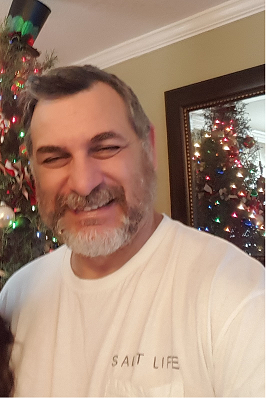2020 National Caucus Virtual Discussion Speakers
Friday, October 30, 2020 | 12:00 pm – 5:30 pm Eastern
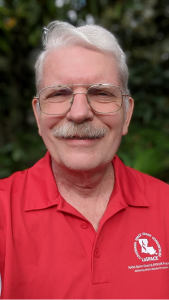 T. Gregory Guzik is the Director of the Louisiana Space Grant / NASA EPSCoR program. His scientific career has focused on astrophysical energetic particles including large class cosmic ray balloon instruments launched as long duration balloon flights in Antarctica, heavy ion particle accelerator experiments, cosmic ray instruments on-board satellites, and is part of an international collaboration working with the CALET high energy cosmic ray instrument on-board the International Space Station. Dr. Guzik has been directly involved with Space Grant and NASA EPSCoR for close to 20 years including developing and managing both entry-level and advanced experiential student ballooning programs. Dr. Guzik currently serves as the Chair of the NASA EPSCoR Caucus.
T. Gregory Guzik is the Director of the Louisiana Space Grant / NASA EPSCoR program. His scientific career has focused on astrophysical energetic particles including large class cosmic ray balloon instruments launched as long duration balloon flights in Antarctica, heavy ion particle accelerator experiments, cosmic ray instruments on-board satellites, and is part of an international collaboration working with the CALET high energy cosmic ray instrument on-board the International Space Station. Dr. Guzik has been directly involved with Space Grant and NASA EPSCoR for close to 20 years including developing and managing both entry-level and advanced experiential student ballooning programs. Dr. Guzik currently serves as the Chair of the NASA EPSCoR Caucus.
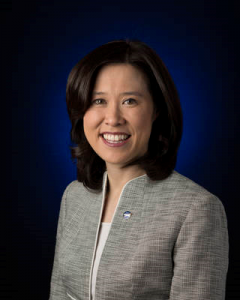 Elaine Ho serves as the deputy associate administrator for the STEM Engagement Program at NASA Headquarters. She provides executive leadership for NASA’s Office of STEM Engagement by leading and managing the Congressionally appropriated $120M portfolio of STEM Engagement projects that benefit students, universities and educational institutions. Prior to joining NASA, Elaine was a practicing attorney and held senior leadership positions in several large federal agencies and the White House.
Elaine Ho serves as the deputy associate administrator for the STEM Engagement Program at NASA Headquarters. She provides executive leadership for NASA’s Office of STEM Engagement by leading and managing the Congressionally appropriated $120M portfolio of STEM Engagement projects that benefit students, universities and educational institutions. Prior to joining NASA, Elaine was a practicing attorney and held senior leadership positions in several large federal agencies and the White House.
 Dr. Leslee Gilbert is an advisor to the EPSCoR/IDeA Coalition has an extensive background in higher education, research, technology development, and politics. She has nearly 12 years hands-on experience in the Washington policy-making process, and over 20 years of experience working in and with institutions of higher education. She worked for nearly 10 years on Capitol Hill, including 5 years as the Staff Director and Counsel to the House Science, Space, and Technology Committee. Prior to her work in Federal policymaking, she was a university professor.
Dr. Leslee Gilbert is an advisor to the EPSCoR/IDeA Coalition has an extensive background in higher education, research, technology development, and politics. She has nearly 12 years hands-on experience in the Washington policy-making process, and over 20 years of experience working in and with institutions of higher education. She worked for nearly 10 years on Capitol Hill, including 5 years as the Staff Director and Counsel to the House Science, Space, and Technology Committee. Prior to her work in Federal policymaking, she was a university professor.
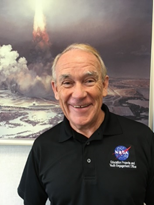 Jeppie Compton is the NASA EPSCoR National Project Manager and is based at NASA Kennedy Space Center. He manages research and development grants to 28 states through their major universities in physical science, life sciences, or other fields of science, engineering, project management, technical collaboration, technical requirements development, technical professional communication, complex problem solving, and research and analysis methods and techniques. He is currently NASA EPSCoR projects being integrated to fly on the ISS, serves as the grant’s Technical Officer (COR) and has experience within a broad range of disciplines. He currently manages over 140 active
Jeppie Compton is the NASA EPSCoR National Project Manager and is based at NASA Kennedy Space Center. He manages research and development grants to 28 states through their major universities in physical science, life sciences, or other fields of science, engineering, project management, technical collaboration, technical requirements development, technical professional communication, complex problem solving, and research and analysis methods and techniques. He is currently NASA EPSCoR projects being integrated to fly on the ISS, serves as the grant’s Technical Officer (COR) and has experience within a broad range of disciplines. He currently manages over 140 active
A lexander van Dijk is a technologist in the Flight Opportunities (FO) program where he builds bridges to new user communities across NASA and the wider space technology community that could benefit from commercial suborbital flight testing. His current activities focus on aligning FO with the SBIR/STTR program, and on engaging the ISS user community through the ISS Research Integration Office (JSC/OZ).
lexander van Dijk is a technologist in the Flight Opportunities (FO) program where he builds bridges to new user communities across NASA and the wider space technology community that could benefit from commercial suborbital flight testing. His current activities focus on aligning FO with the SBIR/STTR program, and on engaging the ISS user community through the ISS Research Integration Office (JSC/OZ).
C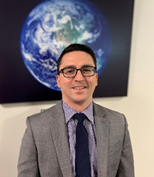 hris Murguia is a Senior Analyst in NASA’s Office of the Chief Financial Officer, Grants Policy and Compliance Branch (GPC). He and the GPC team are responsible for developing, maintaining, and promulgating agency-wide grants policy and ensuring that NASA complies with Federal grant regulations. Chris has worked in GPC since December 2019, and prior to joining NASA he spent about six years at the Department of State managing foreign assistance grant programs.
hris Murguia is a Senior Analyst in NASA’s Office of the Chief Financial Officer, Grants Policy and Compliance Branch (GPC). He and the GPC team are responsible for developing, maintaining, and promulgating agency-wide grants policy and ensuring that NASA complies with Federal grant regulations. Chris has worked in GPC since December 2019, and prior to joining NASA he spent about six years at the Department of State managing foreign assistance grant programs.
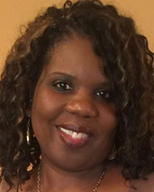 Helen joined the NASA team in November of 2015. She is an Administrative Contracting Officer/Grant Officer in the Research and Activities Branch managing contracts and grants for Johnson, Armstrong and Kennedy Space Centers. She’s served as a Government employee for 30+ years beginning as a student worker and spending the majority of that time in the Financial Arena. Helen enjoys serving in her current position and plan to retire in 2 years
Helen joined the NASA team in November of 2015. She is an Administrative Contracting Officer/Grant Officer in the Research and Activities Branch managing contracts and grants for Johnson, Armstrong and Kennedy Space Centers. She’s served as a Government employee for 30+ years beginning as a student worker and spending the majority of that time in the Financial Arena. Helen enjoys serving in her current position and plan to retire in 2 years
 Greg Nagurka has been in Law Enforcement for over 15 years to include local and military experience. Greg joined NASA OIG, Office of Investigations, as Criminal Investigator in 2017 and is stationed at GSFC. Greg currently liaisons part-time with the Export Enforcement Coordination Center (E2C2) and also co-chairs on the Foreign Influence Working Group (FIWG), comprised of OIG and DOD investigators.
Greg Nagurka has been in Law Enforcement for over 15 years to include local and military experience. Greg joined NASA OIG, Office of Investigations, as Criminal Investigator in 2017 and is stationed at GSFC. Greg currently liaisons part-time with the Export Enforcement Coordination Center (E2C2) and also co-chairs on the Foreign Influence Working Group (FIWG), comprised of OIG and DOD investigators.
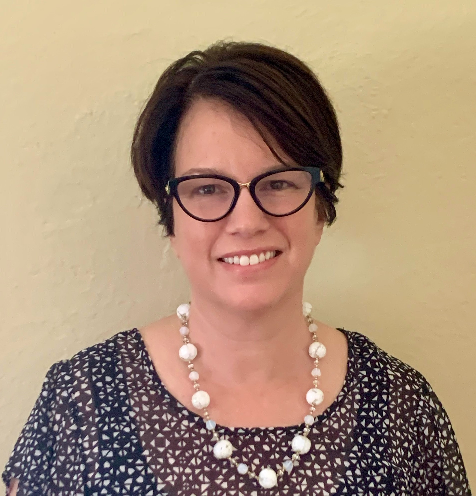 Jessica Molesworth is the Executive Director of the EPSCoR/IDeA Foundation. For more than 20 years, Mrs. Molesworth has worked with higher education coalitions and institutions with a focus on research, research infrastructure capacity, technology, and economic development. She has extensive knowledge of federally sponsored research programs in areas ranging from defense and energy to health, water quality, and science education curriculum development.
Jessica Molesworth is the Executive Director of the EPSCoR/IDeA Foundation. For more than 20 years, Mrs. Molesworth has worked with higher education coalitions and institutions with a focus on research, research infrastructure capacity, technology, and economic development. She has extensive knowledge of federally sponsored research programs in areas ranging from defense and energy to health, water quality, and science education curriculum development.
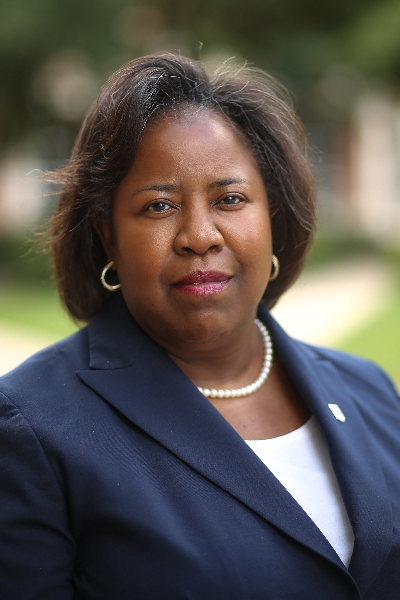 Dr. Loretta A. Moore serves as the Section Head for the Established Program to Stimulate Competitive Research (EPSCoR) section of the Office of Integrative Activities (OIA) at the National Science Foundation (NSF). Dr. Moore came to NSF from Jackson State University (JSU), where she is a Professor of Computer Science in the Department of Electrical & Computer Engineering and Computer Science. She has served as Vice President for Research and Federal Relations and Associate Vice President for Research and Scholarly Engagement, working to enhance the scholarly careers of JSU faculty members. Also at JSU, she served as the Interim Associate Dean for the College of Science, Engineering and Technology. Dr. Moore joined JSU’s faculty over 19 years ago as Chair of the Department of Computer Science. Dr. Moore has held positions at Auburn University, AT&T Bell Laboratories, Lawrence Livermore National Laboratory, Army Research Laboratory, NASA Kennedy Space Center and NASA Marshall Space Flight Center. She received her B.S. degree in Computer Science from Jackson State University and her M.S. and Ph.D. degrees in Computer Science from the Illinois Institute of Technology.
Dr. Loretta A. Moore serves as the Section Head for the Established Program to Stimulate Competitive Research (EPSCoR) section of the Office of Integrative Activities (OIA) at the National Science Foundation (NSF). Dr. Moore came to NSF from Jackson State University (JSU), where she is a Professor of Computer Science in the Department of Electrical & Computer Engineering and Computer Science. She has served as Vice President for Research and Federal Relations and Associate Vice President for Research and Scholarly Engagement, working to enhance the scholarly careers of JSU faculty members. Also at JSU, she served as the Interim Associate Dean for the College of Science, Engineering and Technology. Dr. Moore joined JSU’s faculty over 19 years ago as Chair of the Department of Computer Science. Dr. Moore has held positions at Auburn University, AT&T Bell Laboratories, Lawrence Livermore National Laboratory, Army Research Laboratory, NASA Kennedy Space Center and NASA Marshall Space Flight Center. She received her B.S. degree in Computer Science from Jackson State University and her M.S. and Ph.D. degrees in Computer Science from the Illinois Institute of Technology.
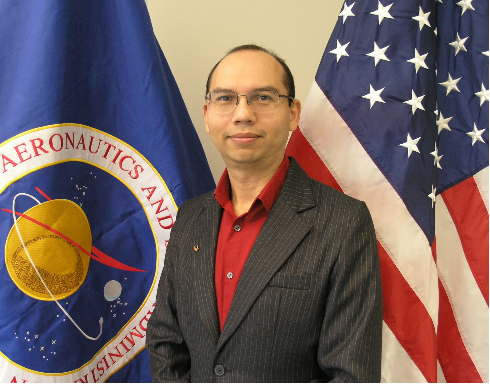 Lester Morales, MD is currently a NASA Program Specialist at NASA Kennedy Space Center. Dr. Morales was a school science teacher and his industry career was as a Medical Doctor. Morales began his NASA career under the National program NASA INSPIRE, where he served as mentor to high school summer interns at NASA Langley. Morales has served KSC as an Education Specialist for 10 years. Today, he works with NASA EPSCoR by leading an interagency partnership with the National Science Foundation. He also serves as the NASA Representative for NASA’s Community College Aerospace Scholars.
Lester Morales, MD is currently a NASA Program Specialist at NASA Kennedy Space Center. Dr. Morales was a school science teacher and his industry career was as a Medical Doctor. Morales began his NASA career under the National program NASA INSPIRE, where he served as mentor to high school summer interns at NASA Langley. Morales has served KSC as an Education Specialist for 10 years. Today, he works with NASA EPSCoR by leading an interagency partnership with the National Science Foundation. He also serves as the NASA Representative for NASA’s Community College Aerospace Scholars.
 Chinonye “Chi-Chi” Nnakwe Whitley, is the Program Officer, Established Program to Stimulate Competitive Research (EPSCoR) Office of the Director (OD), Office of Integrative Activities (OIA) National Science Foundation (NSF) Dr. Whitley obtained her B.Sc. in Biochemistry with Departmental Distinction from the University of Illinois at Urbana-Champaign and her Ph. D. in Pathology from the University of Chicago. Dr. Whitley joined the Office of Integrative Activities in September 2017 and serves as a Program Officer for the NSF Established Program to Stimulate Competitive Research (EPSCoR). She currently manages a $107M portfolio of 26 standard grants and cooperative agreements, and focuses on building basic science research infrastructure, promoting economic development and broadening participation in STEM.
Chinonye “Chi-Chi” Nnakwe Whitley, is the Program Officer, Established Program to Stimulate Competitive Research (EPSCoR) Office of the Director (OD), Office of Integrative Activities (OIA) National Science Foundation (NSF) Dr. Whitley obtained her B.Sc. in Biochemistry with Departmental Distinction from the University of Illinois at Urbana-Champaign and her Ph. D. in Pathology from the University of Chicago. Dr. Whitley joined the Office of Integrative Activities in September 2017 and serves as a Program Officer for the NSF Established Program to Stimulate Competitive Research (EPSCoR). She currently manages a $107M portfolio of 26 standard grants and cooperative agreements, and focuses on building basic science research infrastructure, promoting economic development and broadening participation in STEM.
 Jose G. Colom Ustariz, is currently a Program Officer at NSF EPSCoR. He is a faculty member from the University of Puerto Rico Mayaguez, where he was Chairman of the Electrical and Computer Engineering Department. He has a BS in Electrical Engineering from UPR Mayaguez, MSEE from UMass Amherst, and PhD from Penn State. His area of expertise is Microwave Engineering. His most recent research activities were in the development and implementation of a network of Dual Pol X-Band Doppler radars in the west coast of Puerto Rico.
Jose G. Colom Ustariz, is currently a Program Officer at NSF EPSCoR. He is a faculty member from the University of Puerto Rico Mayaguez, where he was Chairman of the Electrical and Computer Engineering Department. He has a BS in Electrical Engineering from UPR Mayaguez, MSEE from UMass Amherst, and PhD from Penn State. His area of expertise is Microwave Engineering. His most recent research activities were in the development and implementation of a network of Dual Pol X-Band Doppler radars in the west coast of Puerto Rico.
 Dr. Fenstermaker is the Director of the NV Space Grant Consortium, NV NASA EPSCoR program and two statewide research programs addressing the effects of climate change: Nevada Desert FACE Facility (NDFF) and the Mojave Global Change Facility (MGCF). She is also serving as the Deputy Director of the DRI Division of Earth and Ecosystem Sciences and DRI’s UAS Liaison. Her research has focused on assessing, mapping, and monitoring the effect of environmental stressors on vegetation at all scales using remotely sensed data from ground to satellite based platforms including UAS (unmanned aircraft systems).
Dr. Fenstermaker is the Director of the NV Space Grant Consortium, NV NASA EPSCoR program and two statewide research programs addressing the effects of climate change: Nevada Desert FACE Facility (NDFF) and the Mojave Global Change Facility (MGCF). She is also serving as the Deputy Director of the DRI Division of Earth and Ecosystem Sciences and DRI’s UAS Liaison. Her research has focused on assessing, mapping, and monitoring the effect of environmental stressors on vegetation at all scales using remotely sensed data from ground to satellite based platforms including UAS (unmanned aircraft systems).
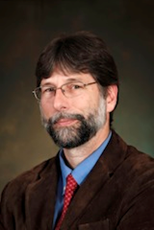 Dr. L. Scott Miller is Professor & Chair of Aerospace Engineering, Director of NASA in Kansas, and a National Institute for Aviation Research Fellow at Wichita State University (WSU). He has been involved in various research projects and worked summers at Boeing and NASA Langley Research Center. He has been honored as a Bombardier-Learjet Fellow, a Dow Outstanding Young Faculty Award recipient, the AIAA National Faculty Advisor Award recipient, and an AIAA Outstanding Section Chairman. Professional interests include education, experimental aerodynamics, airfoil & aircraft design, rotor aerodynamics, wind energy, and laser velocimetry. In addition, he is a certified “airplane nut.”
Dr. L. Scott Miller is Professor & Chair of Aerospace Engineering, Director of NASA in Kansas, and a National Institute for Aviation Research Fellow at Wichita State University (WSU). He has been involved in various research projects and worked summers at Boeing and NASA Langley Research Center. He has been honored as a Bombardier-Learjet Fellow, a Dow Outstanding Young Faculty Award recipient, the AIAA National Faculty Advisor Award recipient, and an AIAA Outstanding Section Chairman. Professional interests include education, experimental aerodynamics, airfoil & aircraft design, rotor aerodynamics, wind energy, and laser velocimetry. In addition, he is a certified “airplane nut.”
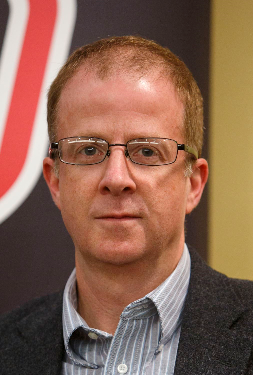 Scott Tarry is Director of the NASA Nebraska Space Grant and EPSCoR programs, which are headquartered at the University of Nebraska at Omaha (UNO) where Dr. Tarry also serves as the Director of the UNO Aviation Institute. Dr. Tarry has been engaged with NASA EPSCoR since 2000 when he served as principal investigator for a NASA EPSCoR-funded project on the development of a Small Aircraft Transportation System (SATS). He worked on the SATS project with researchers at NASA Langley Research Center (LaRC) and spent the summer of 2000 at LaRC as a faculty fellow. Dr. Tarry has served as chair of the NASA EPSCoR Caucus and is currently Vice Chair of the National Council of Space Grant Directors. He and his colleagues have helped facilitate a number successful NASA EPSCoR Research Awards and two EPSCoR-funded ISS projects.
Scott Tarry is Director of the NASA Nebraska Space Grant and EPSCoR programs, which are headquartered at the University of Nebraska at Omaha (UNO) where Dr. Tarry also serves as the Director of the UNO Aviation Institute. Dr. Tarry has been engaged with NASA EPSCoR since 2000 when he served as principal investigator for a NASA EPSCoR-funded project on the development of a Small Aircraft Transportation System (SATS). He worked on the SATS project with researchers at NASA Langley Research Center (LaRC) and spent the summer of 2000 at LaRC as a faculty fellow. Dr. Tarry has served as chair of the NASA EPSCoR Caucus and is currently Vice Chair of the National Council of Space Grant Directors. He and his colleagues have helped facilitate a number successful NASA EPSCoR Research Awards and two EPSCoR-funded ISS projects.
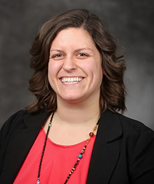 Caitlin Nolby is the Director of North Dakota NASA EPSCoR and the North Dakota Space Grant Consortium, and a Research Assistant Professor in Space Studies at the University of North Dakota. She previously served as Coordinator and Deputy Director. She has a B.S. in Astrophysics, an M.S. in Space Studies, and is currently pursuing a Ph.D. in Teaching and Learning. Her research interests are underserved communities (including, but not limited to: women and underrepresented genders, underrepresented minority populations, and persons with disabilities) in STEM, LGBTQ+ in Higher Education, and NASA and STEM Historiography.
Caitlin Nolby is the Director of North Dakota NASA EPSCoR and the North Dakota Space Grant Consortium, and a Research Assistant Professor in Space Studies at the University of North Dakota. She previously served as Coordinator and Deputy Director. She has a B.S. in Astrophysics, an M.S. in Space Studies, and is currently pursuing a Ph.D. in Teaching and Learning. Her research interests are underserved communities (including, but not limited to: women and underrepresented genders, underrepresented minority populations, and persons with disabilities) in STEM, LGBTQ+ in Higher Education, and NASA and STEM Historiography.
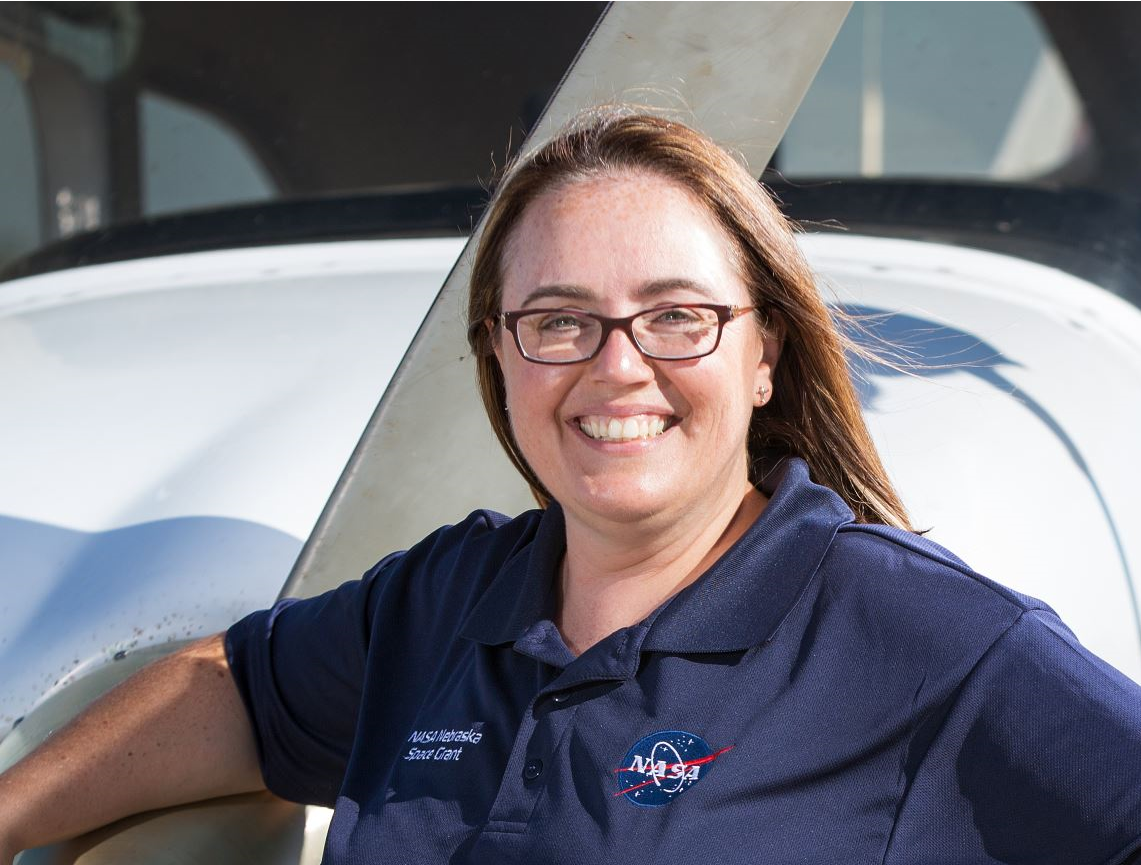 Michaela Lucas is Associate Director of the NASA Space Grant and EPSCoR Programs for Nebraska. Michaela developed the Nebraska Space Ambassador program in 2013. This elite group of Nebraska educators offers training to increase the STEM skills of other teachers. She partnered with NASA to host the first national conference for educators at Kennedy Space Center in 2018 and 2019. Previously, Michaela served as an Instructor of Aviation and Senior Research Associate at the University of Nebraska at Omaha where she now continues to teach as an aviation adjunct instructor. She was elected to the Board of Directors of Women in Aviation International in 2018 and serves as the Secretary for the organization.
Michaela Lucas is Associate Director of the NASA Space Grant and EPSCoR Programs for Nebraska. Michaela developed the Nebraska Space Ambassador program in 2013. This elite group of Nebraska educators offers training to increase the STEM skills of other teachers. She partnered with NASA to host the first national conference for educators at Kennedy Space Center in 2018 and 2019. Previously, Michaela served as an Instructor of Aviation and Senior Research Associate at the University of Nebraska at Omaha where she now continues to teach as an aviation adjunct instructor. She was elected to the Board of Directors of Women in Aviation International in 2018 and serves as the Secretary for the organization.

